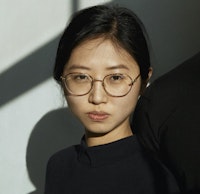We spoke with three of them – all presenting concerts this autumn. Wouter Torringa and Soohyun April Jang both have backgrounds as jazz violinists, while Olaf Andreas Strand has studied classical piano.
Dutch-born Wouter’s project focuses on the relationship between performer and audience – an angle that naturally leads to trying out new ways of experiencing music.
"I work a lot with placing the performance around the audience, so the audience is really submerged into the sounds," he explains.
At the same time, he is working on blending jazz, free improvisation, and contemporary classical music into a coherent whole. He describes it as crossing bridges between different worlds.










